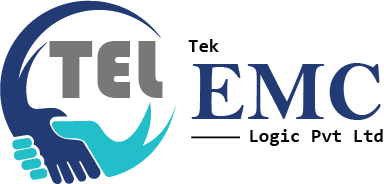Key components of a .NET Full Stack Developer's role:
Front-end Development: This involves building the part of the application that users interact with directly.
.Net Full Stack Developer
NET Full Stack Developer uses technologies like: HTML, CSS, JavaScript for structuring and styling web pages Front-end frameworks like Angular, React, or Vue.js for building dynamic and interactive user interfaces Styling libraries like Bootstrap or Material UI to ensure responsive design
Back-end Development: This is where the developer focuses on server-side programming, data processing, and business logic. The core back-end tools for a .NET developer include:
C# (the main programming language in .NET development) The .NET Framework or .NET Core/ASP.NET Core for building web applications, RESTful APIs, and microservices Entity Framework for interacting with databases, using Object-Relational Mapping (ORM) to manage database data in a more object-oriented way
Database Management: A .NET Full Stack Developer is proficient in working with databases, both relational (e.g., SQL Server, MySQL) and sometimes NoSQL databases (e.g., MongoDB). They write queries, manage data, and perform CRUD (Create, Read, Update, Delete) operations.
Web Services and APIs: Building and consuming RESTful APIs (and sometimes SOAP services) for communication between front-end and back-end components.
Version Control and Collaboration: Using tools like Git and platforms like GitHub, GitLab, or Azure DevOps for code management, version control, and collaboration with teams.
DevOps and Cloud: Many .NET developers are familiar with cloud services such as Microsoft Azure and tools like Docker, Kubernetes, and CI/CD pipelines for deployment and operations.
Skills for a .NET Full Stack Developer: Proficiency in C# and ASP.NET (or ASP.NET Core)
Front-end technologies: HTML, CSS, JavaScript, and front-end frameworks like Angular, React, or Vue.js
Database management: Knowledge of SQL and NoSQL databases Web APIs and microservices: Experience in developing and integrating APIs
Version control: Familiarity with Git and collaboration platforms (GitHub, Bitbucket)
Cloud and DevOps: Experience with cloud platforms (Azure) and containerization tools (Docker) In summary, a .NET Full Stack Developer is responsible for developing both client-side and server-side components of an application, primarily using the .NET ecosystem for back-end processes. They ensure the full functionality of an application, from its user interface to how data is processed and stored.

